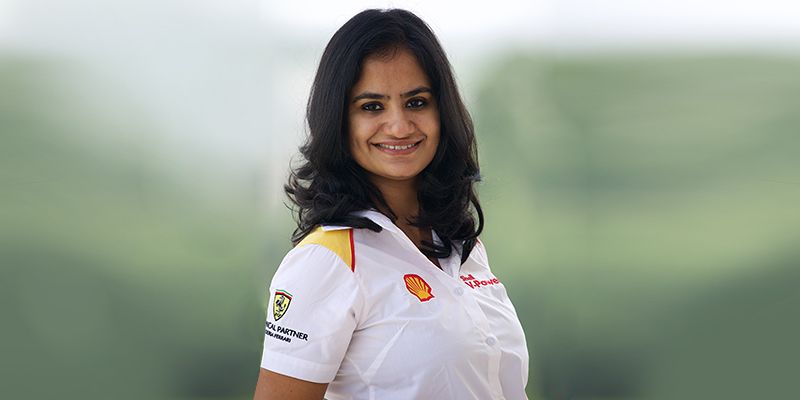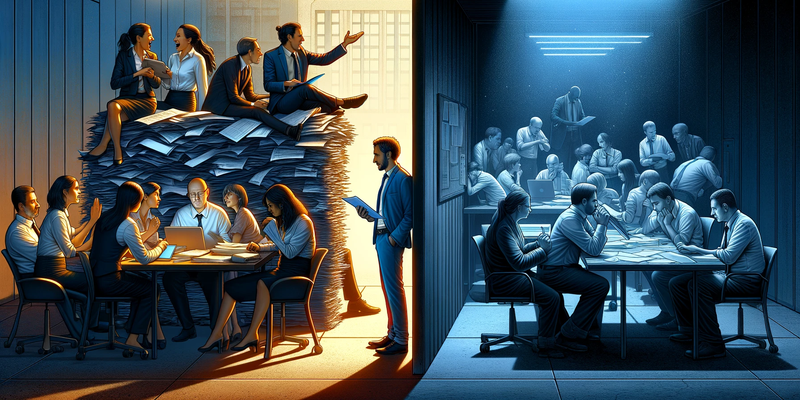Shelly Mittal’s workplace adventure can be your handbook to onsite survival
Shelly Mittal has made unique choices in life and never let anyone or anything stand in the way of her dreams.
Two roads diverged in a wood, and I—
I took the one less travelled by,
And that has made all the difference.
These lines define Shelly Mittal’s life. Currently working as a programme manager in retail engineering at Shell, Shelly has worked as the only woman on site and that too in vulnerable regions like Iraq. From being a lone ranger on the professional front to adjusting with a conservative family on the personal, Shelly has become a pro at trudging the road less taken.
“I believe getting out of the comfort zone is the key to making life’s journey full of unique experiences,” she says.
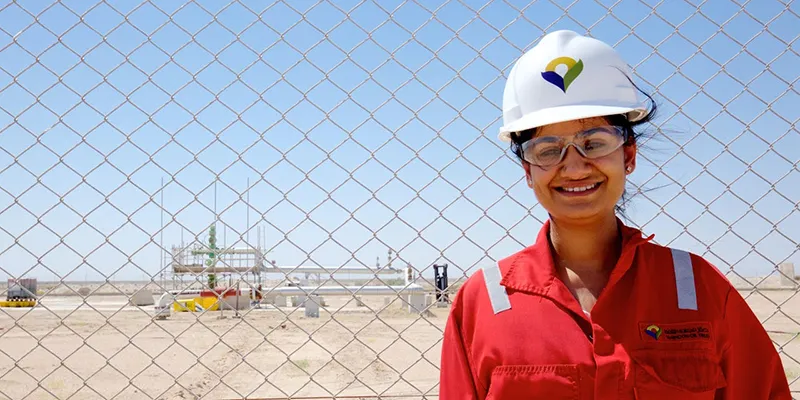
Determination is the key to success
Born and brought up in Moga, a small town in Punjab, Shelly got an early taste of adventure from her mother. From scary childhood rides to moving to Kota, Rajasthan to prepare for IIT, her mother encouraged her to follow her heart.
She was so determined to get into IIT that she didn’t apply anywhere else, and it was while studying chemical engineering at IIT Delhi—where 10 percent of a batch being women was considered noteworthy— that she really learnt how to hold her own among men.
“Because of this ratio in class, I got used to being surrounded by guys and hearing sexist comments. Gender bias is embedded in our society due to which it trickles down to various aspect of a girl’s life. These things only make me stronger so I have got used to it now,” says the 30-year-old.
Early influences
Shelly started her career with Shell Oil and Gas Company in 2008. Based out of Bengaluru, she did technical consultancy for different Shell operations around the world.
Two years later, an opportunity to work onsite in Qatar piqued her interest. Shelly worked there for two years and thoroughly enjoyed her stint.
Working on site is very different from the office. For one, says Shelly,
“I think women are ready and capable to take up site postings; however, they are sometimes not aware of the reality and decisions are taken based on perceptions. Also, society plays a key role here. Coming from a conservative mindset and due to concern, family/colleagues are not generally supportive of women taking up site postings.”
A gender-agnostic approach, according to Shelly, is not the best way to approach the challenges that come with an onsite job. According to her,
We should not ignore our gender or change our style. What we have to instead do is approach the job with a certain level of acceptance. In other words, be prepared for the challenges but be ready to work on them. Fighting with things that are not right on site from day one will not help. The key is to communicate what is wrong and slowly make those things happen.
Iraq calling
In 2013, Shelly took off again, this time to Iraq. This time, though, she had company and things had changed since her marriage in 2012. Both she and her husband, who was working in Shell as well, decided to take the posting to Iraq and worked there for three and a half years.
The working hours on site were 12 hours (6 am to 6 pm ) without any weekend or public holiday. Most people would shudder at the thought of working in Iraq but Shelly and her husband did not feel the same way. Shelly says, “I thought, ‘let’s try Iraq as it’s a great opportunity to work onsite again and to try something different which others are not willing to do’. Also, we thought anything could happen anywhere so with this positive mindset both of us decided to go for it!”
Though their families were shocked to hear it they convinced them by telling them that the company had safety measures in place and also that they would get four weeks off which would give them the opportunity to meet regularly.
During her off days, Shelly used to head back to Delhi to stay with her in-laws. Here the atmosphere was quite different from that on site. “I used to live two different personalities, similar to the roles of the twin sisters in the Hindi movie Seeta aur Geeta. The switch over or the transition from one life to the other was the most challenging phase. However, having an open conversation with my husband helped. He was very supportive in the transition phase due to which I could handle it with a very positive mindset.”
The lone ranger
Even with the personal front under control, the challenges at work would have had most women backing off. However, being the only female engineer in a camp of 500 and not being allowed to stay with her husband didn’t deter Shelly.
I am used to being a minority as a female since my college days. This helped me settle relatively easily and I didn’t feel uncomfortable being surrounded by males all the time. The camp was very diverse and had more than 25 different nationalities. As the only female, I used to get stares all the time. In order to deal with it, I decided to just switch my ‘ignore’ button on.
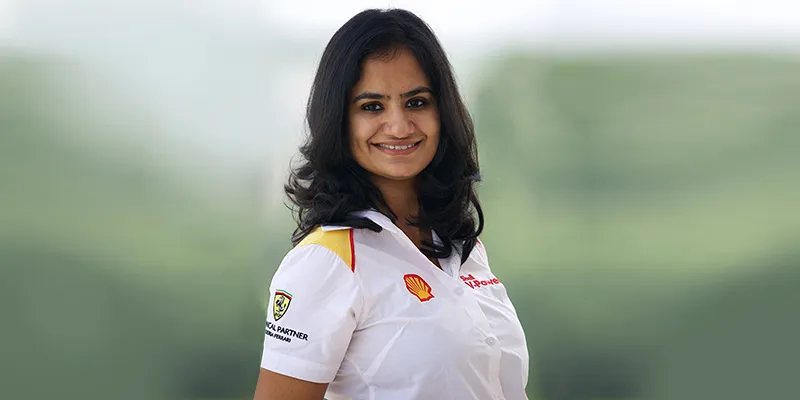
To deal with all the sexism coming her way, she created an aura of being tough and ensured that people came to her for official work and no chitchat. “I was very clear in communicating what I wanted. In fact, there was a club named ‘Scared of Shelly’ due to my strong and straight-to-the-point personality.”
Another major challenge was not having a ladies’ toilet, “The camp is surrounded by landmines laid during the Iraq-Iran war so stepping out was not allowed. The team who designed the facility or plant had never imagined that a female engineer would work onsite here so there was no female toilet. So I had to use the male toilet until I highlighted this to the leadership team and got a female toilet constructed. However, it took a few months.”
Safe workplaces
Working onsite is definitely not an easy task. The challenges Shelly faced are not easy to handle but not impossible either. However, organisations need to enable a conducive environment too.
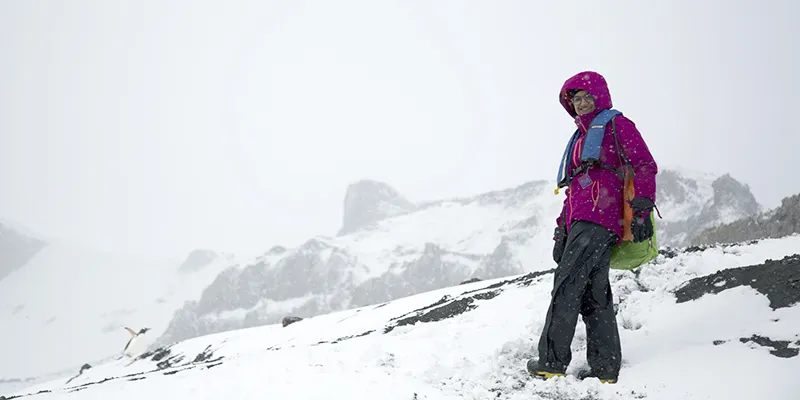
Strong policies related to diversity and inclusion and sexual harassment help to make workplaces and onsite postings equally comfortable. “I have been on two onsite postings, and trust me it is not as difficult as it sounds. In my case, my company has been instrumental in ensuring safety for women and providing adequate facilities.”
One of the other factors that help, according to Shelly, is to have a great women’s network. Such a network helps to share and learn from each other and to hear each other’s experiences to overcome perceptions. Shelly adds that, “Having a supportive partner is really important in order to strike a good balance between personal and professional life.”
Wanderlust beckons
After Iraq, Shelly’s husband quit the job and turned to entrepreneurship and she decided to set up base in Delhi with him.
Her virtual role in Shell’s retail business means mostly work from home. As someone who is comfortable onsite, her biggest challenge is managing both home and work.
I have never worked from home so it’s quite challenging to concentrate on work while being at home. So I decided to rent my own office nearby so that I can get a professional environment. Working alone may sound very exciting with your boss not watching you all the time; however, it gets lonely and it’s not as enjoyable as it seems.
As someone who thrives on adventure, Shelly also went on an expedition to Antarctica while she had some time off from her work in Iraq. A commercial expedition of a group of 80, it was a tough trip and they spent two weeks living off a boat and travelling around the different islands. It was her love for adventure and her learnings from working in Iraq that helped her during the trip. While it’s one thing off her bucket list, Shelly is happy that she was one among the very few people on the expedition who could do a pole plunge, that is, take a dip in the freezing waters of the Antarctic.
Wanderlust still beckons her and while she enjoys her new role, she is seeking her next adventure.
She says, “I wish I can take more unique opportunities like working in Iraq as it has taught me a lot of practical things which are helping me overcome challenges both personally and professionally.”






